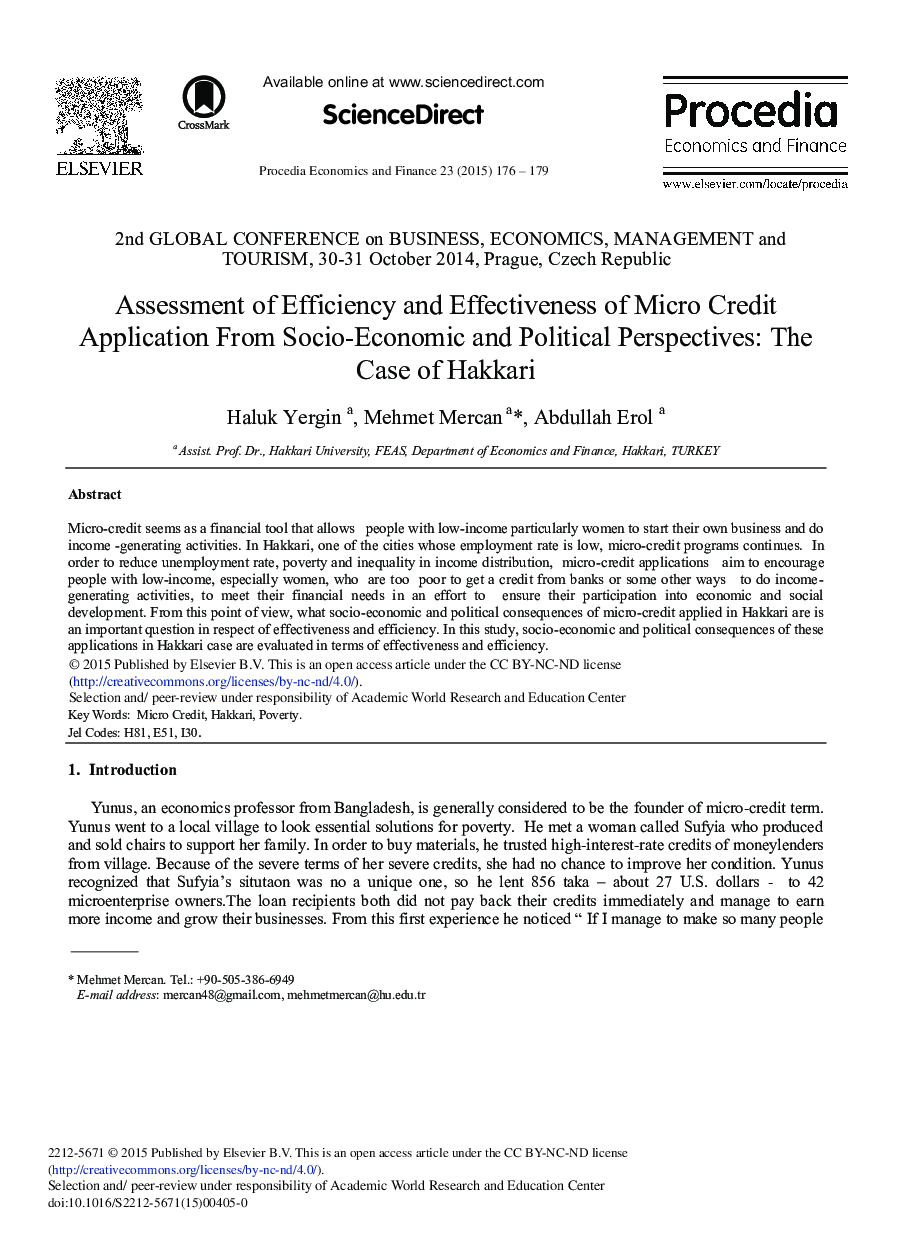| Article ID | Journal | Published Year | Pages | File Type |
|---|---|---|---|---|
| 981387 | Procedia Economics and Finance | 2015 | 4 Pages |
Micro-credit seems as a financial tool that allows people with low-income particularly women to start their own business and do income -generating activities. In Hakkari, one of the cities whose employment rate is low, micro-credit programs continues. In order to reduce unemployment rate, poverty and inequality in income distribution, micro-credit applications aim to encourage people with low-income, especially women, who are too poor to get a credit from banks or some other ways to do income-generating activities, to meet their financial needs in an effort to ensure their participation into economic and social development. From this point of view, what socio-economic and political consequences of micro-credit applied in Hakkariare is an important question in respect of effectiveness and efficiency. In this study, socio-economic and political consequences of these applications in Hakkari case are evaluated in terms of effectiveness and efficiency.
